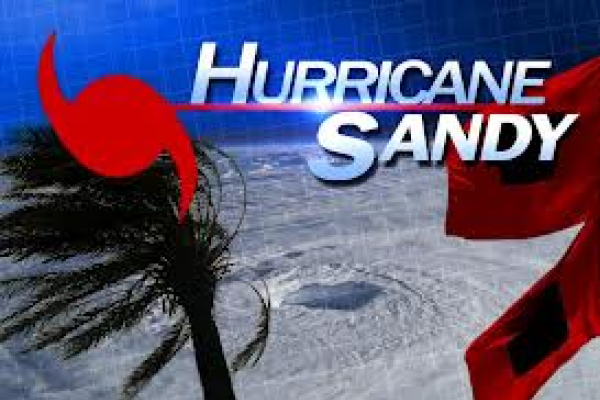October 27, 2012
NYSEG and RG&E Emergency Planners Preparing for Possible Effects of Hurricane Sandy

NYSEG and RG&E urge customers to stay away from downed power lines – even lines that appear “dead” can be deadly. NYSEG customers should call 1.800.572.1131 to report downed power lines or other hazardous situations; RG&E customers should call 1.800.743.1701.
Emergency generators can be dangerous. Carefully read, understand and follow manufacturer’s instructions when operating an emergency generator. Never run emergency generators indoors; operate them only outdoors in well-ventilated areas, away from windows and doors, and never in a garage.
NYSEG and RG&E remind customers to stay out of flooded basements because energized wiring or outlets below the water line may pose a hazard. Natural gas service in a flooded basement may also pose a danger. If a basement or home is in danger of flooding, customers should contact their utilities to turn off electricity and/or natural gas service.
For electricity emergencies and to report power interruptions, NYSEG customers should call 1.800.572.1131; RG&E customers should call 1.800.743.1701.
For natural gas emergencies and to report suspected natural gas odors, NYSEG customers should call 1.800.572.1121; RG&E customers should call 1.800.743.1702.
Rochester, NY – NYSEG and RG&E emergency planners are closely monitoring weather forecasts and preparing for the possible effects of Hurricane Sandy. Depending on the exact track of the storm, portions of the NYSEG and RG&E service areas could experience considerable wind and significant rainfall early next week. NYSEG and RG&E are concerned with the potential impact of falling limbs and trees on power lines and also with possible flooding that could affect both electricity and natural gas facilities.
NYSEG and RG&E front line and support personnel across the state are on heightened alert, the companies’ customer relations centers are prepared and materials are on hand to repair any damage to the companies’ energy delivery systems.
NYSEG and RG&E offer customers the following storm tips:
Before a storm strikes
Anyone who uses life-sustaining equipment that operates on electricity should contact their utility right away (NYSEG: 1.800.572.1111; RG&E: 1.800.743.2110) right away. Customers may be enrolled in a critical customer program or provided specific advice on how to prepare for power interruptions.
- Keep flashlights, a battery-powered radio or TV and fresh batteries handy.
- Have at least one telephone that is not dependent on electricity. (Cordless phones won’t work during a power interruption.)
- Keep a supply of non-perishable food and bottled water on hand.
- Make sure cell phone batteries are fully charged.
During a power interruption
- Contact neighbors to see if their power is off. A loss of power may be the result of a blown fuse or a tripped circuit breaker.
- To report a power interruption, contact NYSEG at 1.800.572.1131; RG&E at 1.800.743.1701. Our telephone systems let callers report the problem, help our crews respond quickly and efficiently, and provide customers with power interruption updates. Because many people may be trying to reach us during a power interruption, phone lines may be busy. Anyone who has access to a working computer during a power interruption can also report the interruption online at nyseg.com or rge.com.
- Listen to a battery-powered radio for weather and power restoration updates.
- Turn off major appliances (electric water heaters, refrigerators and freezers) and sensitive electronic equipment (TVs, VCRs, DVD players, computers, audio equipment) to prevent overloading and possible damage when power is restored. Turning off this equipment may mean unplugging it, turning off a circuit breaker or removing a fuse for the circuit that provides power to this equipment. Leave one light switch “on” to know when power has been restored.
- Don’t use a natural gas or propane range to heat your home.
- Never use outdoor grills or stoves inside.
- Keep refrigerators and freezers closed as much as possible. Most food will last 24 hours if you minimize the opening of refrigerator and freezer doors.
After your power is restored
If a basement or home was flooded, customers should have an electrician check the home and have a plumbing and heating contractor check natural gas appliances before contacting NYSEG or RG&E to have services turned on.
- Turn on appliances and sensitive electronic equipment one at a time to avoid overloading circuits.
- Replenish emergency supplies used during the storm.
About NYSEG, RG&E and Iberdrola USA: NYSEG and RG&E are subsidiaries of Iberdrola USA. NYSEG serves 878,000 electricity customers and 261,000 natural gas customers across more than 40% of upstate New York. RG&E serves 367,000 electricity customers and 303,000 natural gas customers in a nine-county region centered on the City of Rochester. Iberdrola USA, a subsidiary of global energy leader Iberdrola, S.A., is an energy services and delivery company with more than 2.4 million customers in upstate New York and New England. We are a team of dedicated individuals working as one to deliver value to our customers, employees and shareholders. By providing outstanding customer service and exceptional reliability, while holding safety and the environment in high regard, we aspire to be a world-class energy company. For more information, visit www.nyseg.com, www.rge.com and www.iberdrolausa.com.
Follow Us on Twitter: @NYSEandG, @RGandE, @IberdrolaUSA
Media Contacts:
Clayton Ellis
cmellis@nyseg.com
607.762.7336
Dan Hucko
Daniel_Hucko@rge.com
585.724.8825









